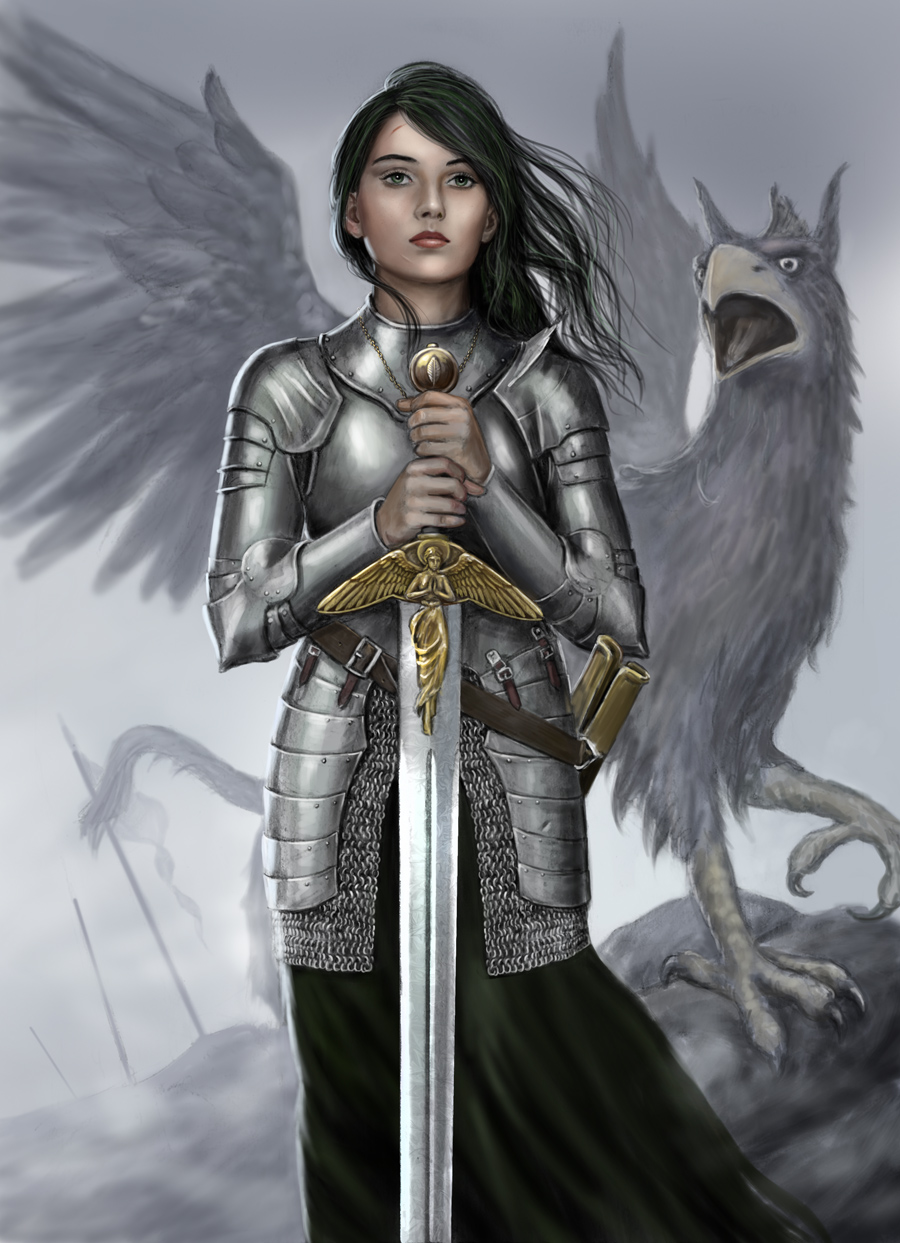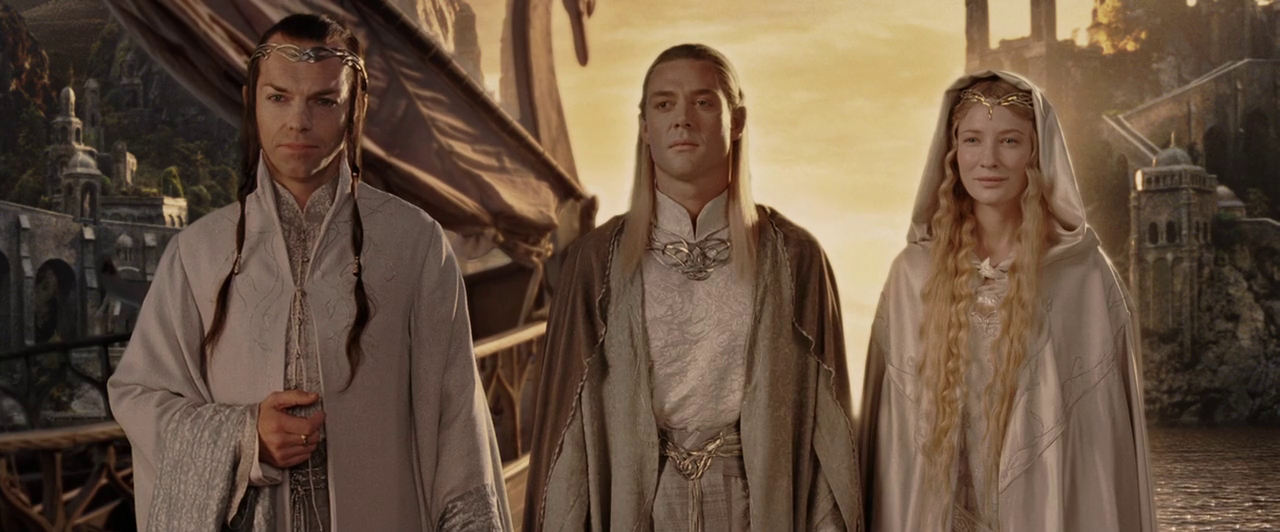The quotes on the back of the book don't help. "This is the first work of high heroic fantasy that has taken the work of Tolkien, assimilated it totally, and deeply, and absolutely ..." Judith Tarr. (Whose life has taken a depressing turn for the worst, it seems.)
Still, I think Elizabeth Moon's reputation is based on a delightful though traditional approach to fantasy, and her works are certainly part of the firmament of the fantasy galaxy. And if you've never read any Moon, you need to get yourself to your Indie bookstore and buy The Deed of Paksenarrion. What makes fantasy, what really takes it from mere swords and sorcery, from plot-based fiction like Stephen Grisham, and much worse, the $2-3 ebook with 500 five-star amazon ratings, and turns it into something with impact, is it's ability to opine almost unerringly on what it is good, and right. And this is something that Paksenarrion does exceedingly well.
Character: The title character, Paksenarrion starts the novel as a teenage girl running away from home, and an arranged marriage, to join a mercenary company. There are a few things that jar about this from the get go, but I think it important to note that an important act of fantasy is the concept of creating an equal world. Not a world where everyone is equal, but one where equality is fundamentally valued by the author. All manner of awful things may happen in such a world, but when it is apparent that the author believes this, the worldview is upheld by a kind, just, and generous spirit. Such individuals create characters like them. And it is these characters who teach us, who show us (by their acts of unspeakable giving, love and faith) that humans are fundamentally capable of good--that despite our flaws, we are redeemable: that hope exist.
 |
| No author caption here: fell down the rabbit hole |
 |
| Artist Unknown. Seriously, he probably died in a mass grave. |
Cliche:This is 80s fantasy, so cliches abound. We will touch briefly upon the obvious ones, elves, dwarves, orcs, magic. The first book of the trilogy mentions the other races in passing, as well as gnomes, and a few other beasties. However, unusual to fantasy, the first book is almost entirely devoid of extra races. That said, elves and to a lesser extent dwarves, play a crucial role in the overall arch of the story. As usual, elves fulfill the usual Tolkien stereotypes. Immortal, tall, otherworldly, slim, beautiful, musical, etc. One neat thing about the elven component of The Deed is that it references something that other earlier fantasy works maintain, namely that the faerie dwell in a sort of shadow kingdom, a world within a world, different and similar to ours. Though Tolkien's elves left the plane of Middle Earth, during their time in it, they were squarely involved "in the shit" as it were. Moon changes the Dwarven cliche nicely. Instead of the beer swilling, anvil hefting, gold digging, creatures we have come to know and love, the Dwarves are very fond of ceremony, and have a peculiar dialect. Unfortunately, we don't learn much more than that. Orcs only really emerge as combatants, quickly slain, and with no real reason for being in the story, merely as a side effect of Evil Influence.
However, Moon, may have been one of the first to embrace the Dark Elf cliche, perhaps not even a cliche at the time. Tolkien's world explored the idea of the corrupted elf, Sauron, the ostensible reason for his long lasting evil. However, Sauron was an exception, there was no race of like minded long-lived evil ones. (I never did read the Simillarion though, so I can't speak to the whole of his work). Regardless, Moon's Dark Elves are unusual compared to the ones that the Dungeons and Dragons cliche embraced. They have the fine elven features, pointy ears, are long lived, etc. that all elves have. But they stink, and they intentionally corrupt all that is beautiful. I thought this was a really great detail, Dark Elves are the anti-elf in EVERY way in this series. The Dark Elves end up being a critical plot point for the series, though they make no appearance in the first book at all.
 |
| By Gerald Brom |
There are dwarves as well, though they play only a minor role. They fulfill some stereotypes, while trumping others. Moon's dwarves are different they have a formal speech, though they are boisterous by nature. A gnome stereotype exists which is quite interesting, though not much explored. The gnomes of Moon's writing aren't the slightly silly, less strong version of dwarves that you often see in the Dungeons & Dragon Realms. Their gnomes are fierce like Terry Brook's gnomes, but are strict adherents to order. Like many creatures faerie (another cliche) they do not believe in gift giving, only in fair exchange. It's an interesting dynamic, and explored more in later books.
Some of the cliche pages, like TV Tropes, point out that the Lawful Good cliche is in full effect here. I honestly don't think that's enough of a cliche to pursue. I do think Lawful Good characters are however, very interesting. It takes a lot of willful blindness to the world to always follow the law and still be good. Even a poor execution of a Lawful Good character can show this dialectic.
Adventure Time Cliche: So in writing this post, I lost an earlier draft, wherein I noted how very much like classic swords and sorcery, dungeons and dragons gaming parts of this book were. I have no problem with that overall, I've been trying to do the same for some time. Real drama is created in such games (the good ones) and a story-teller's polish of such events can create real lasting value. It worked for R.A. Salvator and Margaret Weiss afterall. I noted that one of the scenarios was Paks meeting of a certain half-elf of ill-repute on the road. The two join-up, explore a dungeon, and slay a wizard. But I'd forgotten that they do almost the same thing later on, in Brewers Bridge, the TVTropes site pointed out that it is almost the complete scenario for AD Module 1. For a more thorough listing of Paks cliches, check out this TV Tropes site.
Completeness: The Deed looks and feels like a complete world. Throughout the novels, we explore a good portion of the world, and the interconnectedness of nations is well-demonstrated. The wars of the south, for example, are in large part trade wars, defending various routes to various ports, and various choke points like the castle Dwarfwatch. These are the sorts of things that real wars are fought over, and I appreciate that detail. Moon has some military experience, and the battles are drawn in painstaking detail. Some readers are turned off by this, it seems, but strong detail is never a problem for me.

The religious aspect is well-developed without choking, and was not offensive for an old-time atheist like myself. I've played a few paladins myself, and like I said, I find the character type pretty interesting. The Gods are real, and come across that way--unlike the idiocy and petty squabling of the Forgotten Realms gods, and still ineffable and mysterious, unlike the gods of the Malazan epic.
There are a few untied threads. Now, life is a series of untied threads held together by place, time, and financial obligation. However, those things are tenuous at best in fiction, and untied threads can always be blamed on the author. That said, many of these threads seem to be tied to these one off AD and D adventure modules that occur throughout the books. Mini-stories, that are engrossing, but ultimately have little to do with the arc as a whole.
The arc is a long one, and many readers get turned off by the slow start. When Paks soul searching takes it's darker turn, and where it receives it's finest answer is where the book really starts to shine. It's also where Moon takes the gloves off and shows us some of what evil is truly capable of. In the end, I quite enjoyed The Deed. I did find some of its characters to be in part unrealistic, but wasn't ultimately turned off by it. The Deed of Paksenarrion is worth a read, and doesn't quite deserve some of the heated criticism its received.



